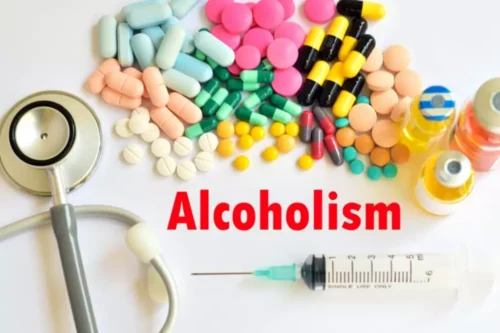Ibupropen Abuse, Signs, Symptoms, Effects,Treatment

Complicated chemical pathways in your body result in chemicals being released if there’s inflammation or damage in any one part of your body. It’s typically uncommon to develop a dependence on NSAIDs, but studies have found more than 11% of ibuprofen users take more than the prescribed dosage and face the risk of becoming dependent on the drug. Use of any drug always carries some risk – even medications can produce unwanted side effects. Other notable areas included Afghanistan, where opium was the predominant opioid, but nonmedical use of pharmaceutical opioids was also substantial. Of Pakistan’s estimated 2.7 million opioid users, 1.6 million reported nonmedical use of pharmaceutical opioids.
Increased sensitivity to pain
- Someone can become psychologically dependent on ibuprofen, mainly if they use it habitually, not just for physical pain relief but also as a way of dealing with deeper emotional or psychological problems.
- At study entry, the participant had viral suppression (HIV viral load less than 50 copies/mL) and had a high CD4 cell count (920/mm3), indicative of well-controlled HIV infection.
- Recognising Ibuprofen addiction involves understanding behavioural, physical, and psychological indicators.
- This underscores muscle aches as a common reason for ibuprofen use that can lead to dependency.
- The brain is full of molecules called receptors that receive signals from other parts of the body.
In reality, individuals can become addicted to painkillers and the relief they provide. As their body adjusts to the side effects, they find that they have to take more and more of the medication to achieve the same results. In addition to exceeding the recommended maximum dose, they may exceed the daily limit or number of capsules they should consume.
What is low dose naltrexone (LDN)?
Heroin is the most prevalent opioid used in India, followed by nonmedical use of pharmaceutical opioids, which impacted nearly 1% of the general population. West and Central Africa also had high nonmedical pharmaceutical opioid usage, with 1.9% or about 5 million users and tramadol being the dominant substance. An addicted person may spend an excessive amount of time and money maintaining their drug supply, even when they can’t afford it and/or must get pills illegally. Their preoccupation with using painkillers may lead to frequently missing school or work, causing a drop in grades or work performance. They may cut back on activities due to drug use or completely lose interest in activities they previously enjoyed.
Factors Contributing to Dependency
- This is part of our ongoing commitment to ensure FHE Health is trusted as a leader in mental health and addiction care.
- Heroin is the most prevalent opioid used in India, followed by nonmedical use of pharmaceutical opioids, which impacted nearly 1% of the general population.
- Prolonged misuse of Ibuprofen can lead to serious health risks, such as gastrointestinal issues, stomach ulcers, and kidney damage.
- Though documented in national epidemiologic studies of substance use, the prevalence of NSAID use disorder is low and few detailed descriptions of such cases (perhaps only one) appear in the peer-reviewed literature.
- Francisco Church is a rehabilitation specialist and the chief editor of Recovery Ranger.
With the right treatment options and compassionate support, individuals can liberate themselves from the clutches of addiction, finding hope and healing along the way. Together, let us traverse this path with empathy and determination, towards a brighter, drug-free future. Recognising these signs and understanding the potential dangers underscores the urgency of seeking professional help. If you or someone you know exhibits these indicators, reaching out for support and guidance is crucial. Professional intervention equips individuals with resources and strategies to confront addiction, embarking on a journey towards recovery. Recognising Ibuprofen addiction involves understanding behavioural, physical, and psychological indicators.
Screening for physical and behavioral dependence on non-opioid analgesics in a German elderly hospital population

People who are athletic or work in physically demanding jobs will often reach for a bottle of ibuprofen for pain relief. Your healthcare provider or pharmacist can provide guidance on safe and effective ways to manage your health conditions while minimising the risk of adverse interactions. Most people who buy Ibuprofen as an over-the-counter medication to relieve pain or muscle aches do not think that it can be dangerous or addictive. Yet, too much Ibuprofen can have damaging side effects and Ibuprofen dependency does exist as a health condition. In short, ibuprofen inhibits the production of substances in your body that cause issues like pain, fever, and inflammation. In addition to branded versions, you can also find generic versions at the pharmacy and online.

Pain management and dietary changes (e.g., avoiding fatty foods) can help relieve symptoms. Dealing with pain isn’t easy, and neither is helping painkiller addiction, but it is possible. High demand, COVID-19 delays and cuts to services have created huge obstacles to accessing treatment for problematic substance use. Experts with experience providing support explain can you get addicted to ibuprofen how to cope when treatment takes time. Even ‘simple’ painkillers like paracetamol, or anti-inflammatory tablets like ibuprofen or naproxen, can become addictive if you take them at least three times a week for three months at a time. The aim of most painkillers is to damp down the sensation your brain gets from these nerve signals, or to reduce inflammation.
Higher doses of buprenorphine may improve treatment outcomes for people with opioid use disorder
Food and Drug Administration (FDA) issued a warning advising women to avoid NSAID use after the 20th week of pregnancy. Together, let us confront Ibuprofen addiction with empathy, understanding, and unwavering support, forging a path towards lives free from the grips of addiction. All rights reserved |Privacy Policy|Advertising Policy Recover HQ does not provide medical advice, diagnosis or treatment. Ibuprofen addiction is a treatable condition, and early intervention can help prevent serious health problems. It is crucial to steer clear of the improper use of ibuprofen to avoid these medical problems.
If it is determined that one of our clients was using excessive amounts of ibuprofen in the past we will avoid using this medication to avoid doing permanent damage to the kidneys or liver. For more information on our individualized program of drug addiction recovery, call Evoke Wellness today for more information. He is an author and editor for Springer, UpToDate, the American Society of Addiction Medicine, the BMJ and the Massachusetts Medical Society (royalties and/or honoraria). Systembolaget, a Swedish government agency that aims to minimize alcohol-related problems, supported transportation and lodging for a presentation on brief intervention at an INEBRIA thematic meeting in 2016. Alkermes provided medication for an NIH-funded trial of alcohol disorder treatment effectiveness.


